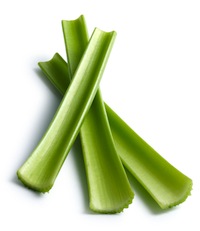Best Very Low Calorie Diet Plan
Very Low Calorie Diets (VLCD's)
 A Very Low Calorie Diet (VLCD) is a diet where normal meals are replaced with drinks, soups, or bars.
A Very Low Calorie Diet (VLCD) is a diet where normal meals are replaced with drinks, soups, or bars.
The typical daily calorie intake is on or under the 800 Calorie mark – however the aim is to be as nutritionally balanced as possible.
These diets are popular because initially people can lose a lot of weight quickly.
However, if a VLCD isn't done correctly it can have negative consequences on a dieter's health.
Prescription Only
A VLCD is normally only used privately and in the medical profession to bring about rapid weight loss in the dangerously overweight person.
Ketosis
These diets should be undertaken only under medical supervision. They are typically a high fat, high protein diet that will bring about Ketosis.
This is when the body breaks down fat for energy instead of using glucose.
Used for Short Periods Only
The diet is only undertaken for a short period of time (a few weeks). In some situations, the meal replacements may only be used for two meals a day – therefore bringing about slower but more manageable weight loss.
Safe VLCD Diets
| Medifast | This has been used by (apparently) over 1 million people, and is endorsed by John Hopkins University. It's a meal replacement plan around the 800-1000 calories mark (which puts it outside the strict definition of a VLCD). It will put the body into a mild state of ketosis. |
| The Cambridge Diet | Used in the UK, this diet has an even lower daily calorie level (400-600) and is a high protein, low fat, low carb diet. |
| Bernstein Diet | For some patients an 800 calorie meal plan will be perscribed. |
| Newcastle Diet | Medically supervised VCLD that reverses type 2 diabetes. |
Dangerous Very Low Calorie Diets
| HCG Diet | This 500 Calorie diet can be dangerous if not supervised by an approved clinic. |
| Sacred Heart Diet | Nutritionally deficient and very low in calories. |
| Cabbage Soup Diet | This soup based diet lacks nutrition and is very low in calories. |
| 3 Day Diet | This VLCD can be dangerous if done more than 3 days. |
Exercise
Generally exercise isn't recommended while a person is on a VLCD as the calories consumed aren't sufficient to support it.
However, some plans recommend light exercise such as walking or swimming for those with an excessive amount of weight to lose.
Conclusions
Initially people following very low calorie diets can lose a lot of weight, which keeps these diets popular.
However, they can be dangerous long-term because they often lack the nutrition your body needs and can actually crash a person's metabolism.
If a dieter wants to use a VLCD, he or she should only do so under medical supervision and if extreme weight loss is needed.
Recommendation
A very low calorie diet is not recommended unless under the care or a physician or medical team and is intended for those that have a considerable amount of weight to lose.
It isn't for those who only have 10-20 pounds to lose and can be especially dangerous for those dieters.
By Mizpah Matus B.Hlth.Sc(Hons)
- References:
- González-Pérez, J., Sánchez-Leenheer, S., Delgado, A. R., González-Vargas, L., Díaz-Zamudio, M., Montejo, G., … & Herrera, M. F. (2013). Clinical Impact of a 6-Week Preoperative Very Low Calorie Diet on Body Weight and Liver Size in Morbidly Obese Patients. Obesity surgery, 23(10), 1624-1631. link
- Johansson, K., Sundström, J., Marcus, C., Hemmingsson, E., & Neovius, M. (2013). Risk of symptomatic gallstones and cholecystectomy after a very-low-calorie diet or low-calorie diet in a commercial weight loss program: 1-year matched cohort study. International Journal of Obesity, 38(2), 279-284. link
- Moreno, B., Bellido, D., Sajoux, I., Goday, A., Saavedra, D., Crujeiras, A. B., & Casanueva, F. F. (2014). Comparison of a very low-calorie-ketogenic diet with a standard low-calorie diet in the treatment of obesity. Endocrine, 1-13. link
Last Reviewed: March 28, 2021
Best Very Low Calorie Diet Plan
Source: https://www.freedieting.com/very-low-calorie-diets